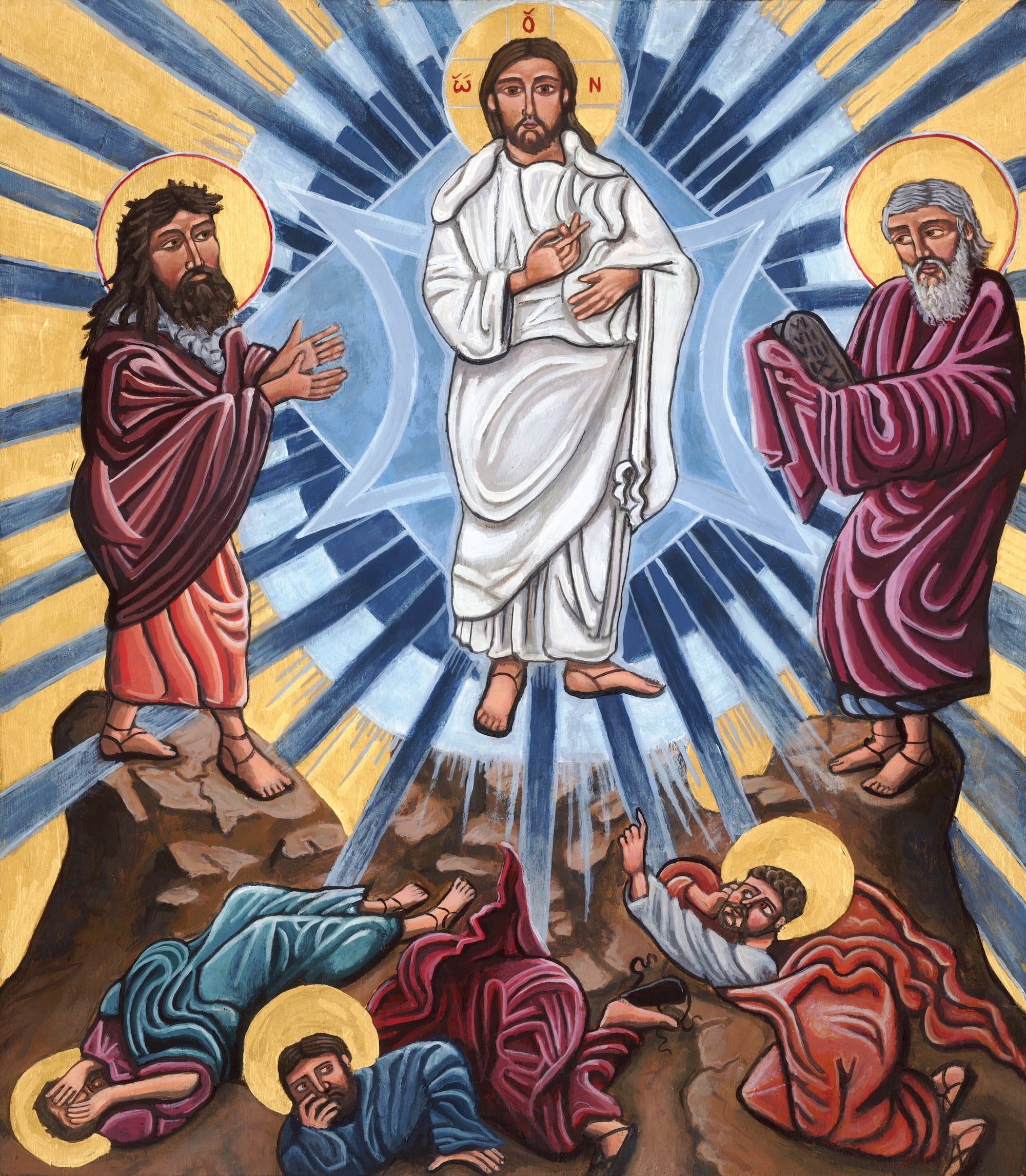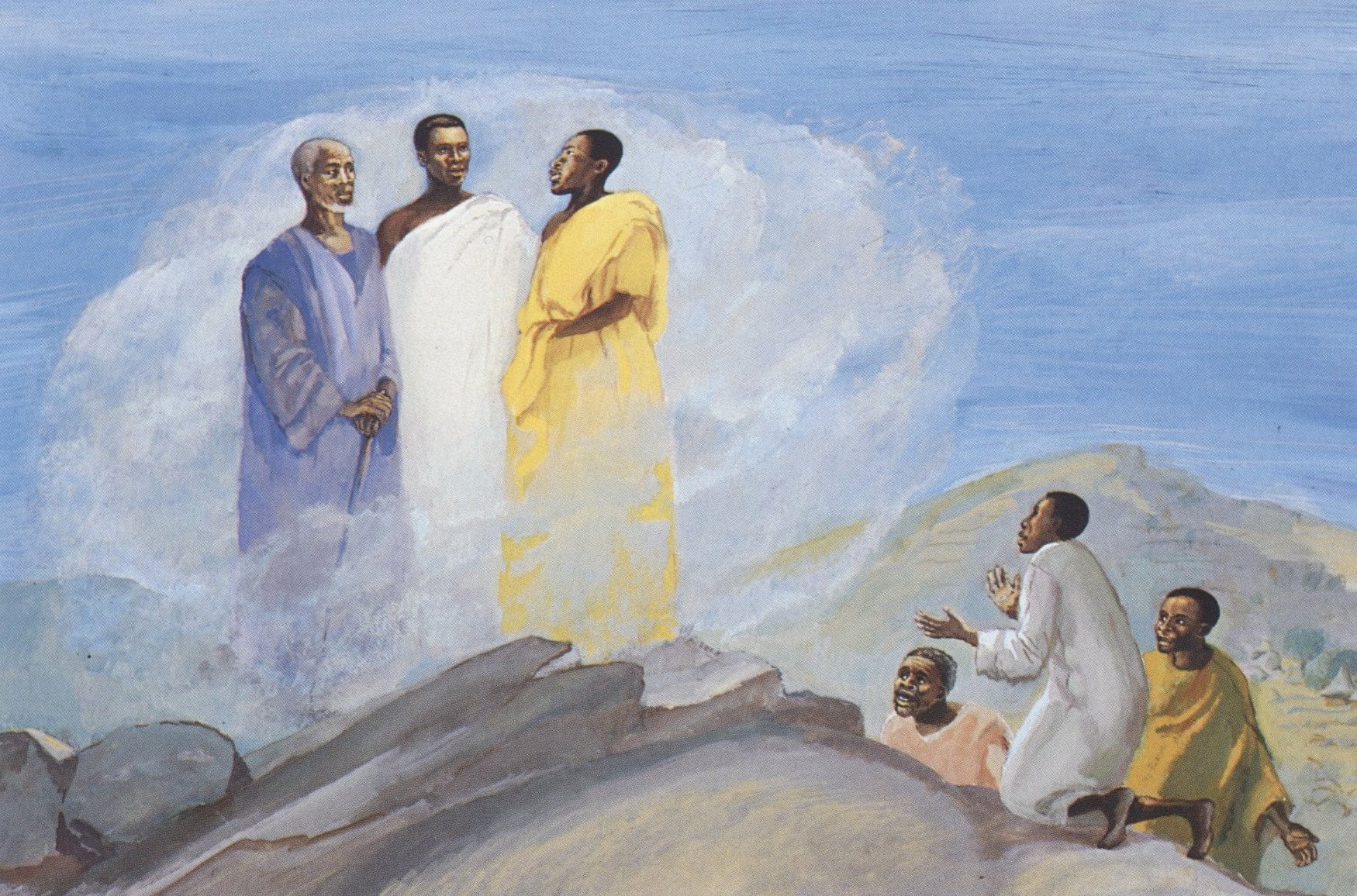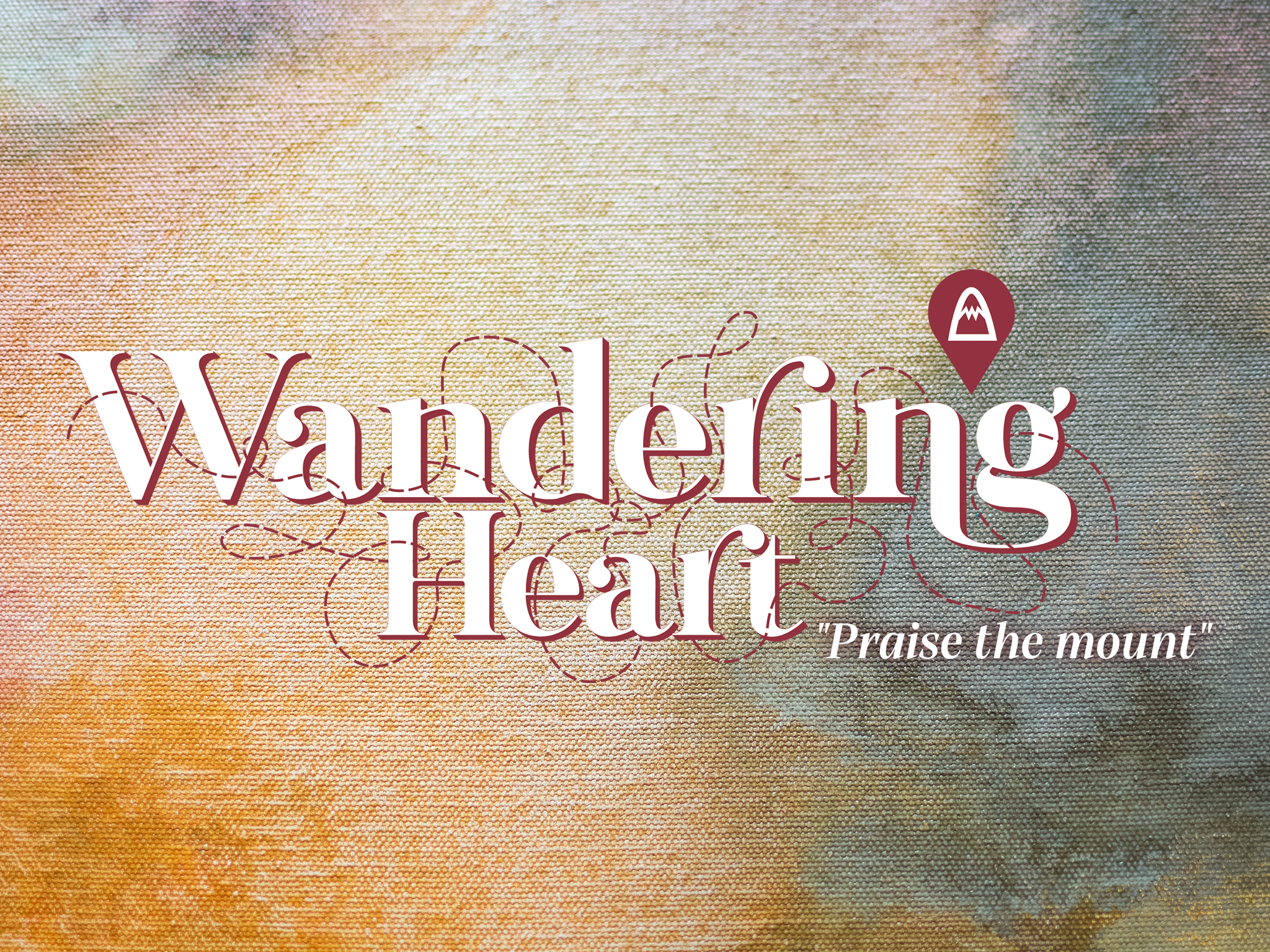Reflection for Transfiguration Sunday
2 Kings 2:1–12; Mark 9:2–9; Psalm 50:1–6
Sometimes stories come like unexpected guests, a knock on the door, hi! I’ve come to visit – oh, actually, I think I’ll stay for while … And then they accompany us through the days and weeks, become a conversation partner bringing their particular light and perspective to our experiences, our tasks, the other stories, of those days.
Ecclesiastes 3 seems to have come to stay with me for a few weeks at the moment. Rob read it for worship at our Elders meeting, when I was already preparing to read it for Tarlie’s mum’s funeral the next day. I’ve been asked to write a piece on ‘change’ for the Synod’s rural ministry ‘Saltbush’, and Ecclesiastes 3 wants to stay and help me with that.
This story companion I have with me at present has pointed me to particular themes in the readings we hear today. Our companion story of Epiphany also has things to show us in the portions we hear, funnily enough, as they’re on the lectionary for that very reason!
‘Transfiguration’
But Ecclesiastes 3 – There is a time for everything, for everything a season.
With that swirling around in my thoughts, I noticed as I hadn’t before the places Elisha says ‘keep silent’, resonating with Jesus’ instruction to his disciples to ‘keep silent’ – and contrasting with the Psalm’s celebration that ‘God does not keep silence’.
Jesus’ instruction is to keep silent for a particular time – Elisha’s is more open-ended.
And let’s look closely at, or rather listen closely to, Elisha’s words. The prophets in Bethel and Jericho ask Elisha if he knows his mentor Elijah is going to God today. Elisha replies (flat tone) yes I know keep silent.
Now, I’ve voiced that as neutrally as I can deliberately, because I want to show you two possible expressions I heard here.
This is how I read the Bible – I hear it. I put it on my voice. When I prepare to tell or read aloud a portion of the Bible, I will have to decide which expression of the possibilities that present themselves will communicate meaning helpfully for these listeners at this time and place. Note, when you are reading aloud, you also will be making a choice, which is why we give our readers the portions for gathered worship several days before Sunday, to give them time to listen to the possibilities and discern.
So, listening to Elisha here, these are the options I heard:
Yes. I know! Keep silent (with knowing eyes, and a wondrous, awe-filled expression)
or
yeah, I know – shut up! (irritated, dismissive)
What do you hear? Do you hear the difference?
It seems to me that the second – yeah, I know, pipe down – draws our attention to a way Elisha might himself be feeling: I know, I’m afraid, scared, don’t like it – stop reminding me! His mentor will leave him, and he will grieve the loss; he may feel uncertain about his capacity to step up and fulfil the prophetic role …
and I think there is room for this interpretation – I don’t think it’s where we would stay, but it’s a good ‘wondering’ – I wonder how Elisha felt is a great way to get inside the stories, move about in them, see how they feel – it’s an act of imagination, or provocation as my friend Richard Swanson would encourage, almost midrashic in a playful retelling kind of approach
‘Elijah’
I suspect, however, that an interpretation like the first way I voiced Elisha’s words, might be more faithful, more faithful particularly to the meaning for the intended audience (as far as we can determine)
Yes! I know. Keep silent. (in an almost whisper of hushed anticipation)
In this interpretation we hear an acknowledgement between Elisha and the prophet groups that they have heard and understood what God is up to
Elisha’s urging to keep silent here might be about not telling the people more generally, at least not yet (though that’s not specified)
and I wonder if that is because Elisha recognises the need to protect the moment and hold it sacred, set apart as being for Elijah and Elisha alone with God, without crowds and spectacle ?
Here is where the ‘time for everything’ of Ecclesiastes 3 comes into conversation with the stories for today, and the season of Epiphany.
There is a time to keep silent, and there is a time to speak, the author of Ecclesiastes reminds us
It would seem, from our stories and season today, that in the moments of epiphany, of Divine revelation, we enter a time to keep silent
A time of hushed expectation I’m sure you’ve known from special occasions, poignant moments ?
For the prophets, Elisha’s reminder not to talk about the miracle God is preparing perhaps asks them not to risk speaking out of turn, trying to explain the inexplicable, crowding in and over God’s action with our selves, our chatter, our ignorance
This ‘keeping silent’ is a holding of the expectant reverent hush – it is a paying attention
And it’s not only our words that we must hush. I am preparing to preside at several weddings this year – and at weddings, I ask guests to ‘silence’ their movements, and not take photos during the ceremony, especially during the vows, so as to keep that hush of respect. I encourage the guests to be still and pay attention with their embodied presence as witnesses to this binding together of two humans.
keep silent. keep still. watch. pay attention.
Is that the same for Jesus with his friends as they leave that transfiguring encounter with God on the mountain? On the way down, can you see him in his own bubble of reverent silence, lingering with the awe of the encounter as long as possible – but popping out of his bubble for a moment, to remind his friends to keep silent. to not speak of this encounter yet. He has to teach them that the meaning of this moment won’t really make sense to them until the story is complete. We’ve seen Peter already crowding the sacred moment with his clumsy words and bustle to do something!
When we have experienced something profound, thrilling, life-changing, we often do feel an urge to shout it from roof tops, tell the whole world, it’s so wondrous and amazing!! Or, like Peter, we stumble around with busyness trying to contain it and understand it, to make it fit within what we already know.
Jesus seems to understand that impulse. And he also understands the place of, the time for, silence. The need to hold that encounter, experience, within as a treasure and gift for you alone for a while, or maybe even always.
Your dear friend tells you of a new job, a new life growing, an impending prize or honour soon to be announced – but that news is, for now, a gift for you alone. To treasure in your secret heart. Honoured. Trusted. Loved such that you are brought into a sacred sharing.
You want to sing, dance, shout your excitement, pride, joy with one you love!
But, no. Now is the time for silence. For restrained joy, for holding a promise sacred and precious.
And it is not about you.
To speak too soon risks overlaying ourselves onto this sacred precious news or moment or revelation of God. And that would tarnish it somewhat, wouldn’t it?
There is time for me.
And there is a time to step out of the way in respect for another, for God.
There is a time to keep silent. Epiphanies, Divine acts and revelations are often such times to keep silent. In order to honour, pay attention, listen.
In the Psalm for today, the psalmist cries – God does not keep silent! When it is time for God to speak, it is time for us to be silent, to shut up and listen.
Psalm 50:1-6
The mighty one, Holy One,
speaks and summons the earth
from the rising of the sun to its setting.
2 Out of Zion, the perfection of beauty,
God shines forth.3 Our God comes and does not keep silence,
before Them is a devouring fire,
and a mighty tempest all around Them.
4 God calls to the heavens above
and to the earth, that They may judge Their people:
5 ‘Gather to me my faithful ones,
who made a covenant with me by sacrifice!’
6 The heavens declare God righteousness,
for God Themself is judge.
And with such a call to gather back into God’s presence, Transfiguration Sunday ends the season of Epiphany with a turning towards Ash Wednesday and Lent – speaking of times and seasons.
We don’t apportion these things into seasons of exclusivity, however – so that, now Epiphany is done, it’s not as though stories of Divine encounter will no longer be told this year.
We give time to various parts of the story of the life of followers of God, to see them each clearly; to remember what we may have forgotten.
We move through seasons to honour the depth and breadth of our lived experience. Societal rules of some times and places around mourning, and how long to wear black, for example, might seem rigid – but this is one way a culture holds time and space for grief. Gives to everything its season. To privilege one element of life over others leads us to become unbalanced: only to grieve, or only to dance – neither is healthy.
Not only is there a time for everything – but there must be, for health and wellbeing.
So we keep our silence in moments of Divine revelation, long enough to linger with the awe …
We turn our focus in the coming season to confession and lament long enough to truly turn ourselves back to God, deep enough to carry the memory and the renewed practices with us through all seasons
We climb the mountain each Sunday, each day if we can, seeking God’s presence, bringing our attention back to God
We stop. look back. look around. attend to the health, strength, opportunities for growth as a community, as we embark on this new season with a new ministry team, and as we emerge from a traumatic year.
There is time for everything, a time for each story, as we, and the seasons, turn.
Amen.







Leave A Comment